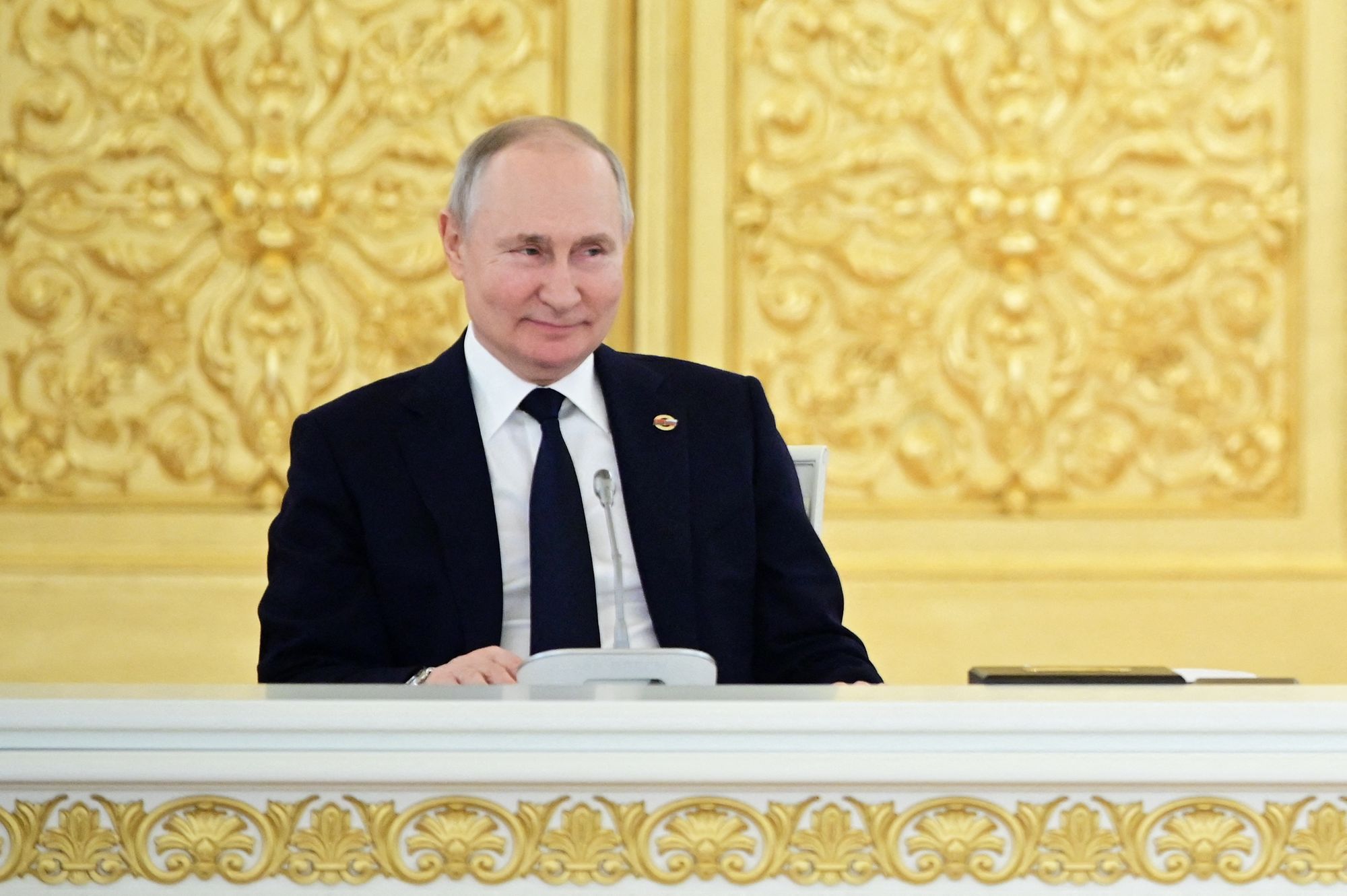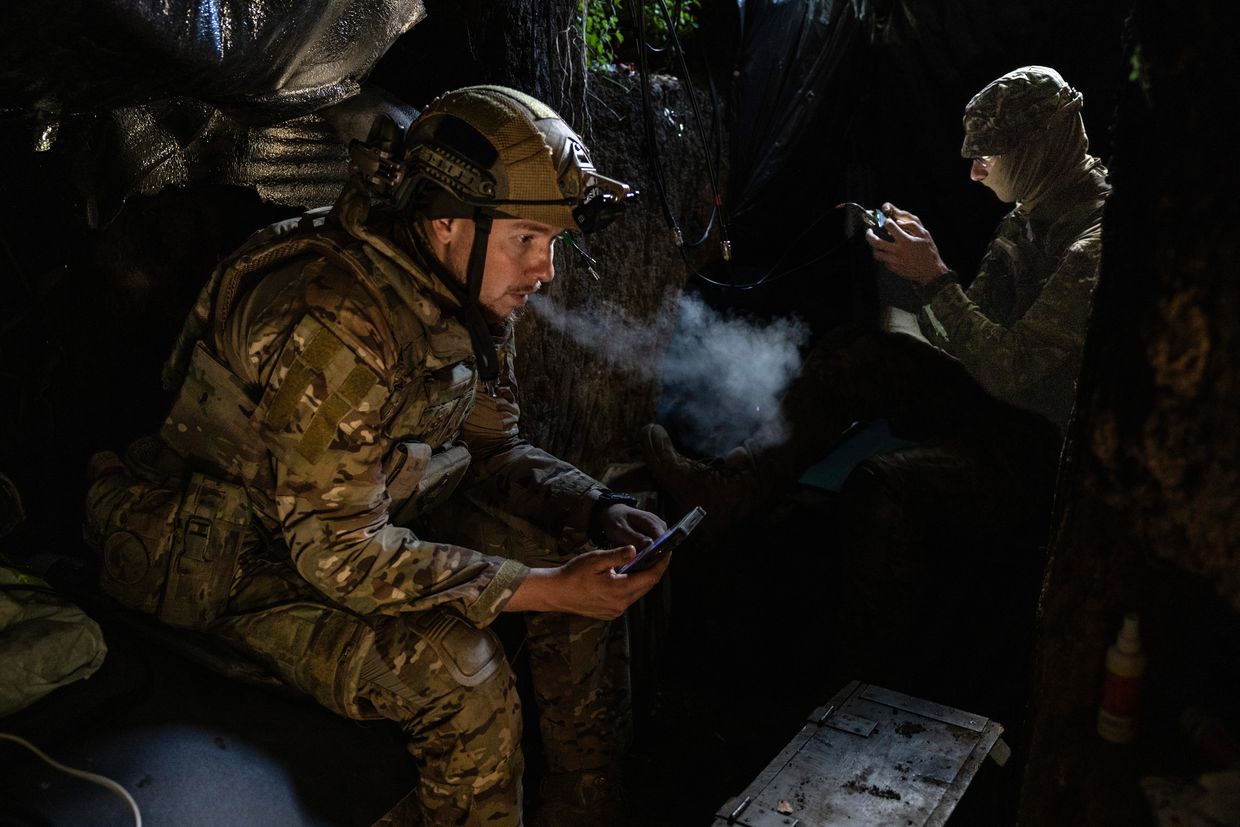Speaking at a press conference in Kyiv on May 10, President Volodymyr Zelensky rebuked the idea of a demilitarized zone in the war and emphasized the importance of first securing a ceasefire.
"We agreed that a full and unconditional ceasefire must begin on Monday, May 12, for at least 30 days. We jointly demand this from Russia, and we know we are supported in this by the United States," Zelensky said.
The announcement follows mounting fears that the two nuclear-armed countries were on the brink of engaging in another full-scale war.
Ukrainian media outlet ZN.UA reported on May 10 that their law enforcement sources confirmed an ongoing probe by the National Anti-Corruption Bureau into suspected embezzlement, money laundering and bribery.
Iran is preparing to send Russia Fath-360 short-range ballistic missile launchers, Reuters reported on May 9, citing Western security and regional officials familiar with the matter.
"Ukraine and all allies are ready for a complete unconditional ceasefire on land, in the air, and at sea for at least 30 days, starting as early as Monday," Ukraine's Foreign Minister Andrii Sybiha wrote.
U.S. President Donald Trump has acknowledged in private that Russia is difficult to negotiate with because they "want the whole thing," referring to Ukraine, the WSJ reported, citing sources familiar with the comments.
The visit marks Merz’s first trip to Ukraine, and the first time all four leaders have travelled there together.
A notice about the airspace closure was published on the U.S. Defense Department's NOTAM (Notice to Airmen) website on May 10, as cited by Ukrainian defense news outlet Militarnyi.
"As in the past, it is now for Russia to show its willingness to achieve peace," the EU's statement reads.
Kremlin spokesperson Dmitry Peskov rejected the idea of a 30-day ceasefire between Russia and Ukraine, claiming in an interview with ABC News on May 10 that it would be "an advantage" for Ukraine.
"Our involvement in the war was justifiable, and this belongs to our sovereign rights," North Korean dictator Kim Jong Un said. "I regard this as part of the sacred mission we must execute for our brothers and comrades-in-arms."
Russia turns to blackmail, big money in effort to recruit German spies, Berlin officials say

Russia is "working hard" to counter the expulsion of diplomats from Germany by turning to blackmail and the lure of big payouts to recruit spies, Berlin officials said on June 18.
The Russian Federal Security Service (FSB) faced disruption after intelligence reports underestimated Ukraine's defense capacity, with Russian President Vladimir Putin placing many top officials under house arrest.
Europe then expelled hundreds of diplomats suspected of espionage, severely hampering Moscow's intelligence gathering operations.
Speaking on June 18, German Federal Office for the Protection of the Constitution (BfV) chief, Thomas Haldenwang, said several recent cases showed Russia was investing large sums of money to recruit new spies as well as employing blackmail techniques.
"Russia is working hard to compensate for the German government's reduction in the number of Russian agents in Germany," he said in comments reported by Reuters.
A new report from the BFV highlighted a case in which two Germans charged last year with spying for Russia had been paid $428,560.
"The agent fees show that Russia's services continue to have enormous financial resources with which to pursue their intelligence goal," the report said.
It also said German diplomats were vulnerable to blackmail and that "as soon as they have compromising information about their targets, these services are not shy about employing aggressive recruitment techniques."
Numerous European nations have raised the alarm about an increase in Russian spy operations in recent months.
European officials say that Putin's decision to leave Russia's borders open following the February invasion allowed FSB spies to join the thousands of Russians who fled the country to avoid mobilization.
At the same time, the FSB's Third Directorate for Military Counterintelligence (DKVR) — which spies on the Russian military and prevents defections — has become the agency's largest division, security analysts say.
Alleged Russian spy rings have been discovered in countries including Ukraine, the U.K., and Slovenia.
The U.K.'s domestic counter-intelligence and security agency Mi5 has reportedly been ordered to prioritize targeting spies over terrorists due to a significant recruitment drive by Russia, China, and Iran.
In May, it was revealed that Russia is recruiting violent right-wing extremists to carry out sabotage attacks in Europe and the U.K., raising concerns among intelligence chiefs.

Most Popular

After 3 years of full-scale war in Ukraine, Europe announces plan to ban all Russian gas imports

Ukraine, Europe's ceasefire proposal includes US security guarantees, no recognition of Crimea, Reuters reports

Journalist Roshchyna's body missing organs after Russian captivity, investigation says

After Russia's deadly attack on Kyiv, Vance reposts denunciation of Zelensky

Ukrainian sea drone downs Russian fighter jet in 'world-first' strike, intelligence says
Editors' Picks

How medics of Ukraine’s 3rd Assault Brigade deal with horrors of drone warfare

As Russia trains abducted children for war, Ukraine fights uphill battle to bring them home

'I just hate the Russians' — Kyiv district recovers from drone strike as ceasefire remains elusive


